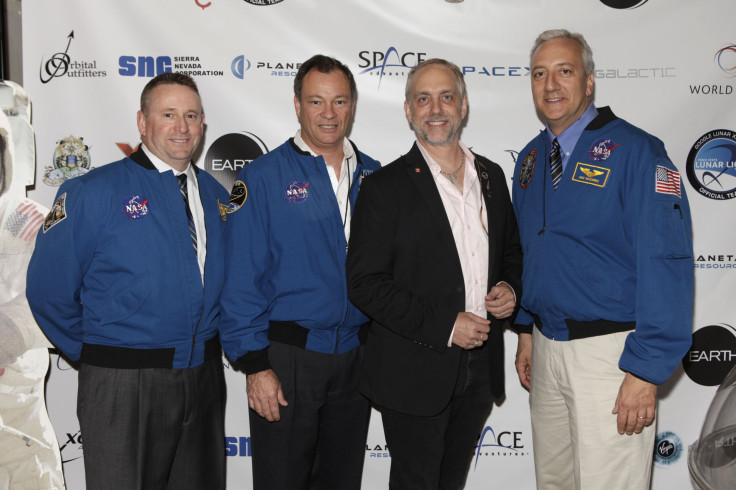Space Travel: Tips For Elon Musk’s Moon Passengers From Astronaut Tourist

Elon Musk’s Space Exploration Technologies Corp. announced its plans last month to send two people on a trip around the moon sometime in 2018. The announcement was a big step for private space flight in the United States, but Russia’s already been there and done that. In 2008, Richard Garriott de Cayeux forked over $30 million to Russia’s Space Adventures to take him on board the International Space Station for almost two weeks.
Now 55 years old, Garriott de Cayeux had some advice for Elon Musk’s two mystery fliers.
“My advice to them would be to medicate early and often,” he told Bloomberg Tuesday.
The former space tourist had some fairly uncomfortable predictions for the two as of yet unnamed travelers.
“Body fluids stop flowing normally, which is why, in space, people’s faces look sort of puffy, and they generally have somewhat bloodshot eyes,” he explained to Bloomberg. “It feels sort of like lying on a children’s slide, head down. In the first days, you get very stuffed up and have a bit of a headache.”
Read: Buzz Aldrin Unveils Virtual Reality Mars Mission Experience

Garriott de Cayeux also said the high levels of radiation in space lead to some disconcerting side effects.
“All of a sudden, you will see this really intense, bright white…and then it will fade back out,” he said.
Garriott de Cayeux’s advice will likely come in handy for the two travelers on their mission to space. Experts have predicted that the trip might be unpleasant in certain respects.
“Like every single astronaut who goes into space, they’re going to get…very bad motion sickness,” Daniel Grant of the Centre for Altitude Space and Extreme Environment Medicine in London told Agence France-Presse earlier in March.
Professional astronaut Scott Kelly warned of difficulties adjusting to zero gravity.
“Sleeping here in space is harder than on a bed because the sleep position here is the same position throughout the day,” Kelly wrote in a Reddit AMA last year. “You don’t ever get that sense of gratifying relaxation here that you do on Earth after a long day at work.”
Read: NASA Scientists Propose Massive Shield Around Mars To Make Planet Habitable
The two private citizens have already paid their deposit for the mission, so there’s no going back. The organization would be conducting health and fitness tests before sending the two people in a 400,000-mile loop around the moon in the Dragon 2 spacecraft sometime in 2018, SpaceX said in a press release in February.
“Like the Apollo astronauts before them, these individuals will travel into space carrying the hopes and dreams of all humankind, driven by the universal human spirit of exploration.”
© Copyright IBTimes 2025. All rights reserved.






















